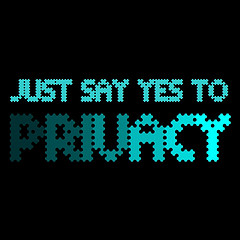They’re everywhere. In our homes. Offices. Schools. They contain sensitive information about us, identify our children, and have enough data about us to let criminals walk right into our homes. I’m talking, of course, about the digital photos on your smart phone.
An over-dramatization? Perhaps, but not by a lot. Recently there’s been a lot of chatter online about digital pictures and privacy. You’ve probably seen the Facebook status updates or buzz on other social media channels about how cell phone pictures can be a danger to your family’s safety. Snopes.com even posted about it recently and gave the topic a green light, which means after reviewing the facts they deem it true. The pictures you take with your smartphone can rat you out to the world.
The truth of the matter is that most devices with cameras these days (most notably smartphones) can add GPS or other location-aware data to your digital images, and can also add dates, times, and other information that could be used to track you down, much like they helped track down a high-profile antivirus software developer who was being sought after by authorities in late last year. This data is called “Exif” (Exchangeable image file format) and can be used to pinpoint your location when a photo was taken. Standalone digital cameras don’t often automatically add this information, but it’s best to check with the manufacturer to be certain.
A sample scenario of a potential privacy breach is as follows: Let’s say you take a picture of your kids at your home with your iPhone. If you don’t have your privacy settings set up in such a way that the Exif data is stripped, the latitude and longitude of where you took the picture is now embedded in the file. Upload that to your blog and now people can grab your image, parse out the Exif data, and find the approximate location of your home. It doesn’t take a tech genius to figure out that within a few hours anyone who saw that picture can be at your doorstep.
Fortunately it’s usually a pretty straightforward task to strip out Exif data (see “verexif.com“, “imageoptim.com” for Macs, or just do a Google search for “remove photo exif data” for more resources). To prevent geo-tagging information to be added to your images in smartphones in the first place, use this guide:
- iOS 6:
- Open
Settings > Privacy > Location Services - Find the entry for
Cameraand swipe the button to the “OFF” position.
- Open
- Android:
- Because the User Interfaces for each Android device is different for each manufacturer, it’s not as easy to tell you how to turn off Exif geo-tagging. The settings are likely under the “
Settings” icon, but the exact path may be different. You may need to hunt a bit for the option. - Note: There are apps that you can download which can help. Find out more details on this blog: “How to Scrub the EXIF Data from Photos on Your Android Phone Before Sharing Them“.
- Because the User Interfaces for each Android device is different for each manufacturer, it’s not as easy to tell you how to turn off Exif geo-tagging. The settings are likely under the “
The up side to all of this is that certain social networks such as Facebook and Twitter proactively strip out Exif data, but that can change in the future and I personally wouldn’t trust it if you’re really concerned about data telling the world where your pictures were taken. Your best bet is to prevent the Exif geotagging from happening in the first place by being proactive about it with your devices.
If you're looking for great anti-virus software that won't break the bank, try StopSign. You don't pay extra for tech support for difficult malware, and our web protection software just works. Download & install StopSign to find out why our members choose us over the other options.









Recent Blog Comments